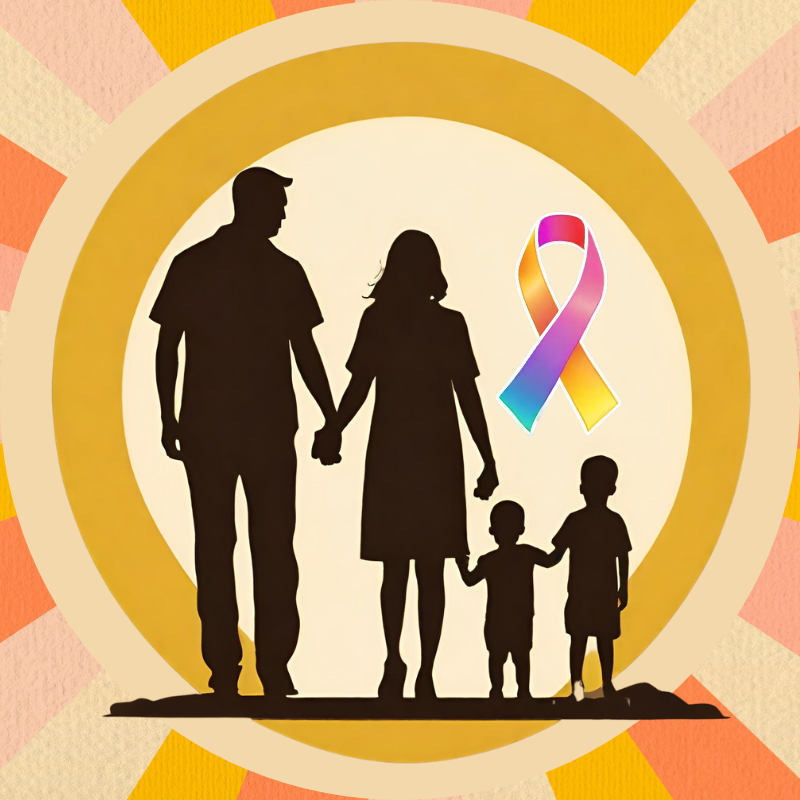Top 5 Breast Cancer Risks (HRT missed the list!)
By: Cyndy Murray, Certified Genetic Counselor
In today’s media landscape, sensational claims such as“Hormone Replacement Therapy Causes Breast Cancer” often lack the context needed to truly understand the implications of this risk. The exaggeration of hormone replacement therapy’s impact has led many to believe it is the primary risk factor for breast cancer, but the reality is quite different. Contrary to popular belief, it does not even reach the top 5 risk factors!
This guide will unravel the truth behind the five most significant risk factors for breast cancer, dispelling myths and providing actionable insights. Join us as we explore these risk factors, or use the list below to jump to the factor that concerns you the most.
Video Version
Gene Mutations
If you have followed cancer genetics developments, you likely come across BRCA1 and BRCA2. These two genes play a pivotal role, contributing to 40%-50% of hereditary forms of breast cancer, amounting to about 5% of all breast cancer cases. Both women and men can carry mutations in these genes, affecting their susceptibility to cancer. For women with BRCA1 or BRCA2 pathogenic variants (mutations)- they face a 60%-70% lifetime risk of developing breast cancer, far exceeding the 12.5% risk in the general population.
Importantly, BRCA1 and BRCA2 are just the tip of the iceberg. Many other genes can increase the risk of breast cancer. Some present more modest risks, but others pose risks comparable to BRCA1 and BRCA2. For those who underwent genetic testing before 2013, their test was limited to BRCA1 and BRCA2. Expanded testing is now available to test these additional breast cancer genes. Any woman carrying a pathogenic variant in a moderate-risk or high-risk breast cancer gene should do increased screening and consider options to reduce their cancer risks. Obtaining updates from a genetic specialist is essential.
Mantle (Chest) Radiation Treatments Before Age 30
Survivors of childhood cancers that require mantle or chest radiation treatments face an elevated risk of developing early-onset breast cancer. This is particularly high if the radiation treatment occurred during puberty or early adulthood, especially for those diagnosed with Hodgkin lymphoma. The chance to develop breast cancer by age 50 for those treated for Hodgkin lymphoma is similar to that of a BRCA1 gene carrier. Likewise, the risk for other childhood cancers requiring radiation treatments aligns with that of BRCA2 gene carriers (PMID: 24752044). Despite a decrease in radiation dosages over time, early and increased breast cancer screening is strongly recommended to those with childhood chest radiation treatment exposures.
Biopsy Results: Atypical Hyperplasia
While most breast biopsies yield benign results, specific findings can increase the risk of developing breast cancer. Atypical hyperplasia, which includes atypical ductal hyperplasia and atypical lobular hyperplasia, can amplify the risk 3-4 times (PMID: 31554551). For women with these findings in a breast biopsy, it’s crucial to undergo increased breast screenings, incorporating both annual breast MRIs and annual mammograms. Additionally, consideration of risk-reducing medications is an option.
Age/Post-Menopause
Recognizing the age-related risk for breast cancer is crucial. Postmenopausal women face a 3-4 times higher chance of developing breast cancer compared to premenopausal women. Moreover, women over age 40 encounter a 2-3 times higher risk than those younger than 40 (PMID: 34319018). In America, the median age of breast cancer diagnoses is 63, and only 10.3% of new breast cancer diagnoses are in women under age 45 (SEER). This underscores the importance of recommending that all women over 40 undergo annual mammograms.
Weight (especially after menopause)
Research indicates that a BMI over 30 is associated with a 1-3 times increased risk for breast cancer. (PMID: 29281867, 34319018). This risk appears to be more pronounced after menopause and may not be as statistically significant before menopause (PMID: 34698654). Maintaining a healthy weight can play a crucial role in reducing the risk of developing breast cancer.
Other Risk Factors
Modest risk factors:
1st Pregnancy after age 30
Family history (without a gene mutation)
Exposure to cigarette smoke
Sweets Consumption
Not having children
Not breastfeeding
Biopsy results: Hyperplasia without atypia
Slight or debatable risk factors:
Drinking alcohol
BMI 25-30
Hormone Replacement Therapy (Estrogen + Progestin) 5+ year use after natural menopause
Oral contraceptive use
First period before age 12
Factors that Reduce Risk:
First period after age 15
Menopause before age 45
Breastfeeding for at least 13 months
Daily exercise
Vegetable consumption
How do you know if you have an increased risk?
If you want to know your breast cancer risks, several models can estimate your risk based on different combinations of family history and personal risk factors. For more information, check out this article here.
To find a genetic counselor near you, visit www.findageneticcounselor.com
Proactive Warriors:
For more detailed information, updates, and answers to FAQs, join the Proactive Warriors Newsletter here:
Disclaimer:
This blog is for general informational purposes only and does not constitute the practice of medicine, nursing, or other professional health care services, including the giving of medical advice, and no doctor/patient relationship is formed. The use of information on this blog or materials linked from this blog is at the user's own risk. The content of this blog is not intended to be a substitute for professional medical advice, diagnosis, or treatment. Users should not disregard, or delay in obtaining, medical advice for any medical condition they may have, and should seek the assistance of their healthcare professionals for any such conditions.

